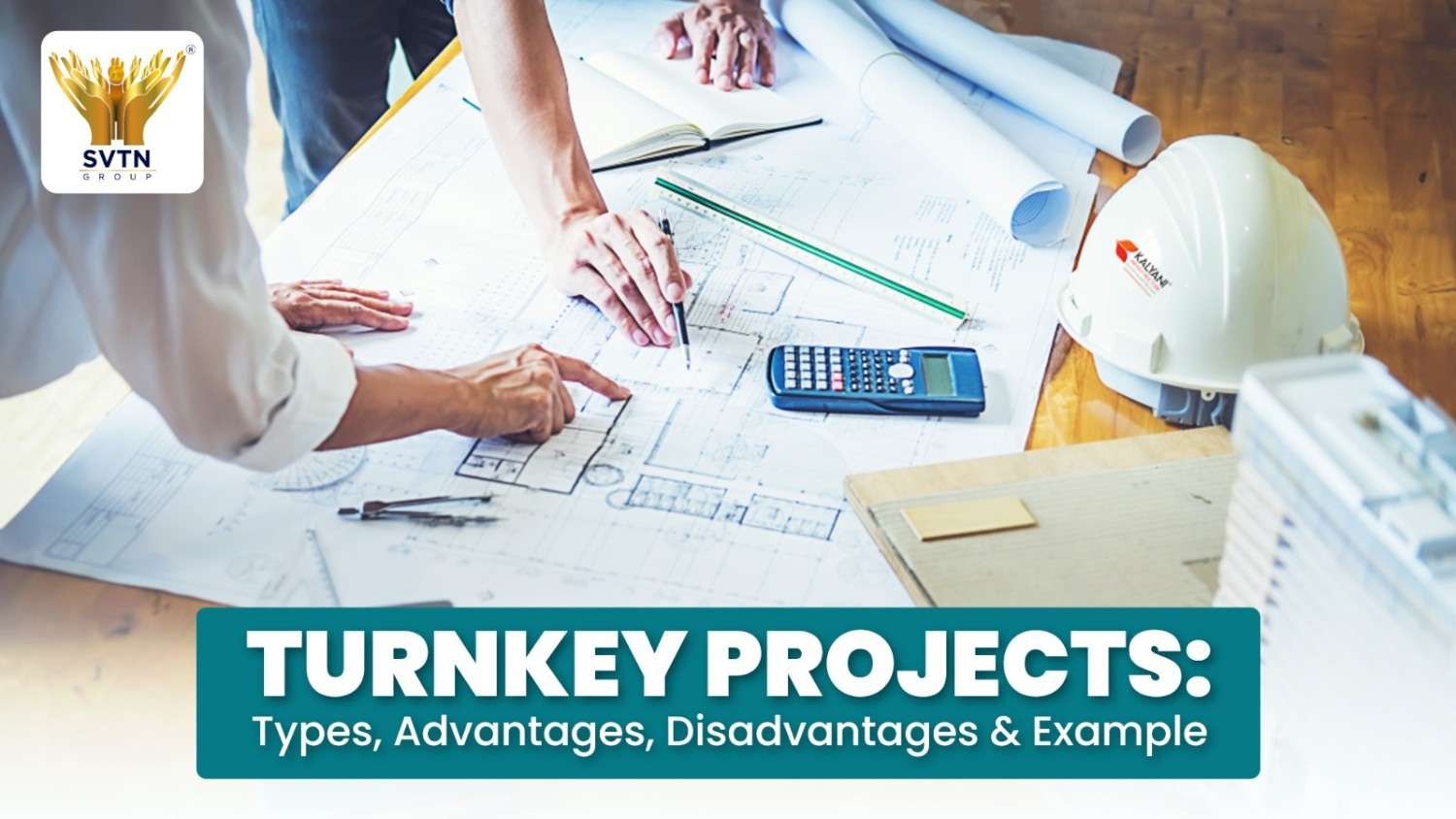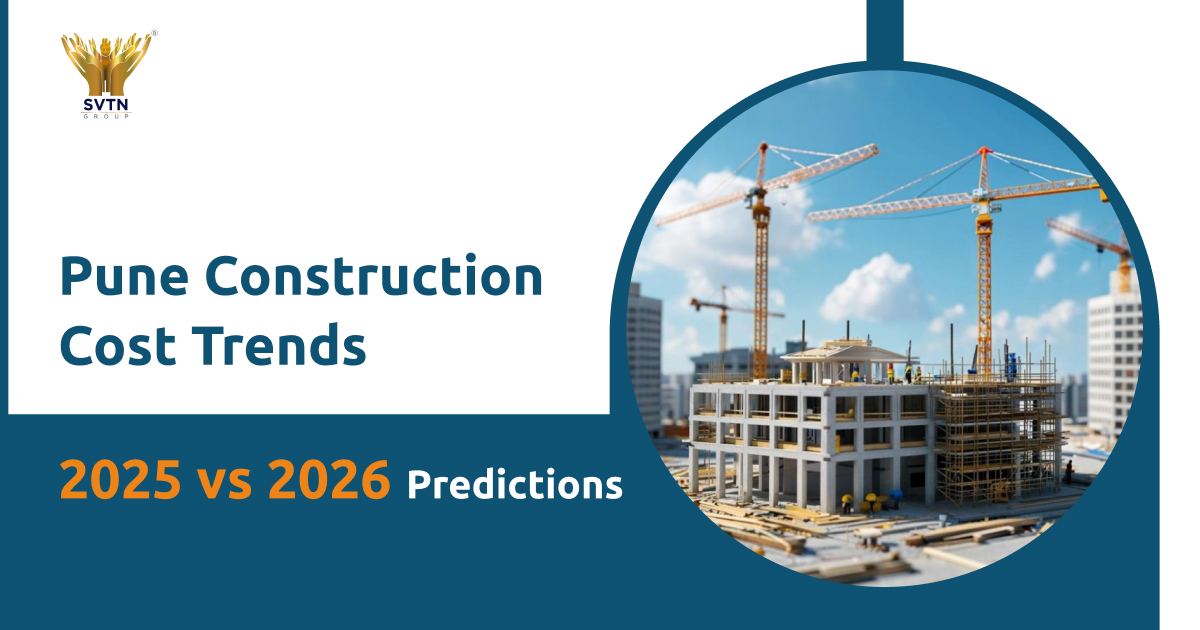Introduction
Whether developing a manufacturing plant, commercial building, or new office space, the construction process can be stressful, time-consuming, and full of decisions. This prompt is where turnkey projects prove to be a practical and efficient solution to the building process. With the turnkey projects, one contractor will handle everything from design to delivery.
For businesses in Pune and beyond, turnkey projects are a practical decision for saving time on a variety of logistical issues and to assure better accountability.
What is a turnkey project?
A turnkey project involves a contractor taking complete responsibility for planning, design, implementation, and, ultimately, delivering a fully operational facility. The client only has to “turn the key” to use the completed facility…hence the name! This contracting strategy is appealing to clients, particularly clients wanting little to no participation in daily construction-related decisions.
Types of Turnkey Projects:
Turnkey solutions are applicable to all sorts of sectors. The following are some common types of turnkey solutions:
- Industrial Turnkey Projects: Factories, warehouses, logistics hubs.
- Commercial Turnkey Projects: Offices, retail shops, shopping malls.
- Residential Turnkey Projects: Villas, apartments, gated communities.
- Infrastructure Projects: Roads, bridges, pipelines, utility facilities.
- Interior Fit-Outs: Design and execution of the full interior.
Must Read: Top Construction Companies in Pune
Detailed Steps in Turnkey Project Development:
1. Project Planning and Design
This phase encompasses feasibility studies, architectural and engineering designs, budgets, and timelines. The better the accuracy in this phase, the better the outcome of the project.
2. Procurement
This phase entails the acquisition of all materials, equipment, and subcontracted services.
3. Construction
The construction phase is where all groundwork, structural work, civil work, and site development take place on the construction site.
4. Installation and Commissioning
Once everything is installed, functional testing, calibration, and fine-tuning can be done to ensure systems are working optimally.
5. Handover
During this phase the final walkthrough will be conducted, and any small issues (snagging) will be addressed. Once completed, the customer will be presented with their new facility, completely functional and ready for occupancy.
Advantages of Turnkey Projects:
- Single Point of Contact
There is no need to separately coordinate the architects, engineers, vendors, and contractors.
- Time Savings
Since all aspects are planned in advance and managed by one entity, the time required for execution is faster.
- Cost Predictability
Fixed-price contracts allow clients to know the costs and manage their budgets with minimal surprises.
- Quality Control
Turnkey contractors are responsible for the quality of work and timelines.
- Less Client Involvement
Perfect for organizations that do not want to focus on micro-managing a project but rather on their own operations.
Disadvantages of Turnkey Projects:
- Reduced Design Flexibility Halfway
Amendments can sometimes be difficult or expensive once construction is underway.
- Higher Upfront Planning Time
All decisions need to be made ahead of time and thus could take a longer time upfront.
- Client Reliance
The client will need to do their due diligence to find the right partner, as there is a single contractor in charge of all work.
Difference Between Turnkey Projects vs Traditional Construction Models:
| Feature | Turnkey Model | Traditional Model |
| Coordination | Single contractor | Multiple vendors |
| Timeline | Faster and pre-defined | May face delays |
| Budget Control | Fixed-price contract | Cost escalations likely |
| Client Involvement | Minimal | High |
| Risk | Contractor bears most risk | Shared or client-borne |
Essential Elements of a Turnkey Contract
1. Scope of Work
The scope of work is a detailed document that outlines all tasks, responsibilities, and deliverables for the project, including the scope of architectural design, site work, electrical and plumbing work, mechanical work, and interior finishes.
2. Schedule
The contract should include an organized schedule in the form of an approved project timeline, outlining all milestones in due date order for the different stages of the project (design, procurement, construction, commissioning, and handover).
3. Payment Schedule
Payment terms are also typically found in construction contracts, with payments being issued based on milestones achieved; for example, signing of the purchase agreement, completion of foundation work, commencement of and completion of slab casting, completion of non-structural invasive interior work, and handover.
4. Quality
The agreement should state what the expected quality of materials is (grades, brands), construction methodology, craftsmanship, and tolerances for the finishes.
5. Penalty Clauses
In order to hold all parties accountable, every contract should include penalty clauses that define penalties for the contractor as a result of delays, poor workmanship, and/or not adhering to the approved scope of work or drawings.
6. Change Management Provisions
The client may change their mind, and consequently the contract must include information on the process required for a change, additional work, or the need to draw on a design variation in terms of how it should be addressed, costed, and approved.
7. Warranties and Defect Liability Period
A well-defined turnkey contract should include claims for warranty for workmanship and materials with a defined defect liability period generally of between 6 to 12 months post-completion with a provision for the contractor to fix any issue at no extra cost.
8. Legal and Regulatory Compliance
This will minimize the legal risks involving construction and improve the likelihood of achieving smooth authorization processes from approved authorities.
How to Choose the Right Turnkey Contractor in Pune
1. Industry Experience in Similar Projects
Experience is a key piece of evidence of a contractor’s competence. Look for those turnkey partners that have done a similar type of project as yours (i.e., commercial spaces, industrial buildings and facilities, or institutional buildings). Knowledge of certain industry standards, design methods, and technical requirements will mean they are already aware of specific potential issues when they evaluate your project and understand how to work them out.
2. Past Work Portfolio & Client References
A still-reputable turnkey contractor will have a variety of projects to show in their portfolio – the projects also need to be verifiable. Ask to see past projects and, where possible, check out completed sites. Don’t be afraid to ask for client references so you can see the contractor’s professionalism in action, their respect for deadlines, and their ability to maintain project budgets.
3. In-House Team & Equipment
If contractors have their own technical team, workforce, and equipment they can use for your project, that will provide better control over timelines and quality. An in-house workforce relies less heavily on third parties, improving consistency and predictability during delays.
4. Project Management Capability
A turnkey project can consist of multiple phases and involve various stakeholders. It is most advantageous if the contractor already has good project management systems in place, good scheduling software, and a project coordinator for each operational aspect. The total assemblage of the management systems helps with coordination, strongly in regard to time, which might be for the procurements or the management of daily on-site operational controls.
5. Transparency in Communication & Quotations
Choose a partner who communicates openly about cost, material, and time. A reliable turnkey contractor will provide you with a detailed itemized quote, will walk you through the scope of work, and will provide updates at each milestone during the project. Transparency in communications promotes your trust, which serves to eliminate hidden costs or misaligned expectations.
6. Compliance and Certification
Be sure the contractor is licensed, insured, and compliant with local laws and regulations. Valid certifications for safety, environmental responsibility, and quality assurance expand credibility beyond just the company and projects you work on.
Why SVTN Group Is the Right Partner for Turnkey Projects:
SVTN Group is one of Pune’s most trusted providers of turnkey construction services. It does not matter whether it is an industrial warehouse, a commercial complex, or an entire residential project; SVTN Group offers everything in one place:
- In-House Designers, Engineers & Site Managers
- Proven experience in industrial and infrastructure work.
- End-to-end project management from project approvals to project handover.
- Commitment to Quality and Timelines.
- Clear Pricing & Customized Solutions.
With SVTN Group, clients can have peace of mind knowing their project is in good hands from day one until completion.
Conclusion:
Turnkey projects provide a direct, dependable, and cost-effective construction method – particularly for organizations that want to stay ahead of the game and allow their project to be undertaken through a professional outfit. The trick is picking a solid contractor that gets your concept and can execute the vision – like SVTN Group.
If quality, speed, and peace of mind are important, you need to consider the turnkey approach.
FAQ
Q1: What is the meaning of a turnkey project in construction?
A turnkey project is a complete construction model. The contractor takes care of the entire project – the design, the approvals, and the final handover. By the end, you will have a facility that you can walk into and use.
Q2: Are turnkey projects more cost-effective than traditional models?
Yes, in most cases. A turnkey project usually gives you a single or fixed price, faster delivery, and fewer coordination issues – saving time and money at the very least.
Q3: What sectors need turnkey solutions the most?
Turnkey solutions work well in all situations but are most beneficial in industrial, commercial, infrastructure, and real estate where things need to be done fast, there is a lot of coordination, or quality control is paramount.




